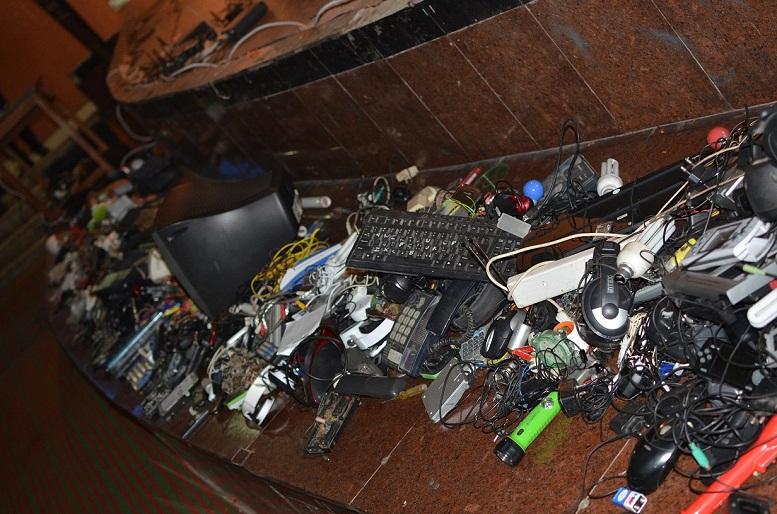The Ministry of Electronics and Information Technology (MEITY) in partnership with Consumer Electronics And Manufacturers Association (CEAMA), National Association of Software and Services Companies Foundation (NASSCOM) & Maharaja Agrasen Institute of Technology (MAIT) came up with a series of awareness programmes on Environmental Hazards of Electronic Waste under the ‘Digital India Initiative’ in the 10 cities of Imphal, Kolkata, Patna, Guwahati, Bhubaneshwar, Indore, Moradabad, Panjim, Pudicherry and Ranchi.
The programmes are an initiative to sensitize and impart knowledge among the students, teachers and parents about proper management, disposal and channelization of E-Waste, thereby reducing the impact of hazardous substances on the environment and encouraging environmentally sound recycling through collective efforts of all the stakeholders involved in the entire E-Waste value chain.
CEAMA in association with WWF-India, AAPSO and Delhi based Eco Roots Foundation conducted an E-Waste awareness programme at Rabindra Bhawan in Guwahati recently. About 1250 students and teachers (in 2 batches) from 15 different schools of Guwahati participated in the event. Vinod Seshan, IAS, Deputy Commissioner, Kamrup Rural and Professor Dhruba Jyoti Saikia, Vice Chancellor Cotton College State University, Guwahati were present as Chief Guests
Seshan while addressing the audience emphasized that hazardous content present in electronic products are harmful for the health of people and for the whole ecosystem in large. He said that there is an urgent need to create awareness on E-Waste and urged the student community to create awareness among the public in keeping the city clean. While unsafe handling and dismantling of products is creating huge impact on people's life at the same time hazardous substances which are released during the extraction processes are being directly dumped into the river and land posing severe threat to the environment, added Seshan.
In his speech Professor Saikia said that E-Waste is an important subject which needs attention. He said that students being the future of the state it is their responsibility to save the environment in which they reside. Students must become responsible consumers which will help in generating lesser quantity of all forms of waste including plastic and E-Waste, said Saikia.
Mita N Goswami, Senior Adviser, Eco Roots Foundation while addressing the audience emphasised on E-Waste discarding methods and said that one should opt to recycle E-Waste.
Rohit Kumar Singh, Manager, Corporate Affairs, CEAMA during his presentation elucidated the responsibilities of students and bulk consumers besides highlighting the hazards of E-Waste on environment. He said that students can act as a crucial stakeholder in educating the society regarding the impact of e-waste. India would become the biggest dumping ground of E-Waste by 2020 and therefore it is crucial at this juncture to ensure proper management and safe disposal of E-Waste in the country, he added.
- 9454 reads








Add new comment